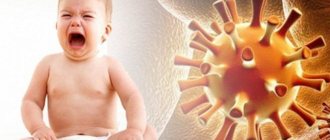The human body is a complex system, where the malfunction of one organ often disables another.
This is especially important to consider in such a delicate matter as sexual health. Any urological or infectious disease can negatively affect the patient’s sexual power.
To unambiguously determine whether kidney stones affect potency, it is necessary to understand the mechanisms on which the increase and decrease in sexuality in men depends. There are two main mechanisms: unimpeded communication between the brain and the penis and normal hormonal levels.
Potency weakens somewhat during kidney inflammation, urolithiasis and during acute infections in general. If the presence of stones is accompanied by constant sharp pain, most likely, sexual power will recede under the onslaught of the disease. This is a temporary effect, but not a reason to panic: if treatment is successful, male strength can be restored.
Thus, the effect of the kidneys on potency is a reversible process.
Qualified diagnostics and therapy will help to effectively solve the problem, but the best remedy, as always, remains timely prevention.
Why is sexual desire impaired?
Impotence occurs due to various factors , which are often closely related to each other. These include:
- all kinds of diseases;
- psychological stress;
- bad habits;
- use of certain drugs;
- excess weight;
- injuries.
A large number of people may not understand how impotence is related to kidney disease. But doctors have proven that about 40% of people suffering from kidney diseases are susceptible to impotence. Kidney infection, kidney injury, renal failure, acute nephrotic syndrome are examples of causes that lead to weakened potency.
How can kidney disease cause impotence? An erection occurs when two conditions are present:
- improved connection between the penis and the brain;
- presence of the required level of hormones.
Kidneys and potency - what is their connection?
Kidney disease, in turn, can interfere with one or both of these conditions. For example: blood circulation slows down, which leads to a weakened erection. The kidneys also produce some hormones that are necessary for the normal functioning of our body. If their production is disrupted, potency will weaken.
Prevention of impotence in kidney disease includes eliminating as many risk factors as possible. The latter include:
- smoking (weakens blood circulation and thereby impairs erection);
- alcohol consumption;
- drug use;
- excess weight;
- drugs that have side effects on the kidneys.
Diseases of the musculoskeletal system
Since there are many different risk factors for the development of impotence in kidney diseases, to prevent erectile dysfunction it is necessary to try to eliminate most of them. To reduce the risk of potency problems, you need to:
- First of all, quit smoking, because this bad habit leads to a slowdown in the speed of blood flow in the body.
- Go in for sports (and not just once a month, but make it your daily habit).
- Always watch your weight.
- Don't drink alcohol.
- Do not take drugs.
- When treating kidney problems, consult with your doctor and do not use drugs that have a high risk of impotence as a side effect.
Also, to maintain normal kidney function, it is necessary to carry out cleansing procedures using medicinal herbs and homeopathic remedies, and monitor your diet.
The effect of protein on potency is regularly analyzed, because due to its great popularity in recent years, many people are trying to make their own impression about it, study its composition, choose the right option for themselves, and sometimes connect its work with the mechanism of action of the pelvic organs in men.
Today there are different opinions about protein, both positive and negative. Some people talk about its beneficial properties during sports activities, while others, on the contrary, argue that it should absolutely not be taken due to harmful side reactions.
For example, in society there are opinions about the harmful effects of protein on male potency, that the composition of the protein can cause sexual impotence in a man, the inability to carry out full sexual intercourse.
These statements inherently arose from a misunderstanding of the difference between protein products and steroid products. Steroid substances can have a negative impact on potency processes and reduce its quality.
But even in this case, a short-term effect of decreased potency occurs, which quickly passes and the normal functioning of the male genital organs is restored. So, does protein affect potency?
Protein is a dietary supplement, usually used by the male population for sports activities, namely to increase muscle mass. Protein consists almost entirely of proteins, with minor amounts of fats and carbohydrates. For its production the following are used:
- Eggs;
- Soy;
- Dairy products.
We suggest you familiarize yourself with How to Quit Smoking at Home Quickly
Soy protein is often used by people who prefer to lead a vegetarian lifestyle. Egg protein supplement is essential for increasing muscle mass. Whey protein helps you gain weight quickly.
The protein supplement is in high demand among sports enthusiasts. But it should be remembered that a high-quality protein product can help an athlete; taking a poorly made substance will cause negative consequences.
How does protein affect potency? Protein powder can affect potency processes only in a situation where it contains estrogens, namely female sex hormones. They may be contained in low-quality cheap soy raw materials.
Taking a high-quality whey protein supplement will not cause abnormalities or disturbances in the functioning of the male genital organs.
Protein and potency are not related to each other in a situation where a natural remedy is taken without steroid substances and other harmful additives. Typically, statements about the effect of protein on potency are made by people who have encountered cheap counterfeit protein powders; they may contain low-quality substances that cause negative side reactions in people.
Does protein affect potency in general? Perhaps the protein can cause any negative consequences in a person with chronic kidney disease; this protein shake does not pose a threat to potency; the protein is not capable of turning a man into impotent.
If a person has chronic pathologies, then before using a protein supplement he should consult with a medical specialist who will conduct an examination of the body to exclude possible contraindications.
The main contraindication may be individual intolerance to protein, since protein is a protein product. Therefore, it may be harmful to people with kidney disease. If there are no contraindications for taking it, then you can safely use it, as it will be beneficial.
It should also be said that it is better to take protein supplements by dissolving them in protein foods, for example, mixing them with curd mass. The regimen for its administration and dosage is prescribed by the doctor for each athlete individually, based on the man’s parameters - height, weight.
The protein product does not have any effect on male hormones, which are responsible for the actions of the penis. But only taking a quality product can eliminate the negative impact. Therefore, when purchasing protein supplements, it is important to carefully read their composition.
If a man notices that his potency is impaired after taking protein, then it is possible that this happened due to the following actions:
- Overtraining - chronic fatigue, excessive tension, physical impotence, lack of rest - all this can lead to a decrease in potency;
- Taking cheap, low-quality supplements containing soy protein with phytoestrogens;
- The placebo effect is when a man can convince himself, due to different opinions of people close to him, that taking protein is harmful, as a result of which he will have a sincere belief about the negative consequences of this supplement, including a decrease in potency;
- The use of fake protein powder with an unknown composition, which can negatively affect potency processes.
It is important to say that environmental factors still have a great influence on the potency of the male population; accusations about “harmful” protein powder are absolutely groundless and unproven.
Most doctors have a positive attitude towards protein supplements, but always add that they are of an auxiliary nature. A man's diet must contain natural protein products.
Regular consumption of beer affects the health of the liver and kidneys, but does beer affect potency? It all depends on the frequency of consumption and the volumes in which alcohol enters the body. Any alcohol affects the production of hormones.
With regular use, libido decreases, since the endocrine system operates in constant intoxication mode. To consider the relationship between beer and potency, you need to turn to the opinion of urologists and narcologists.
Expensive and high-quality beer contains natural ingredients: fermentation products, essential oils, phytoestrogens. Estrogens are sex hormones that are present in large quantities in the body of women.
Men normally produce estrogen in small quantities. Phytoestrogens and especially 8-prenylnaringenin (8-PN) influence testosterone production and hormonal balance in the body.
We invite you to familiarize yourself with Kegel classes for men
Regular consumption of beer causes disruption of the synthesis of testosterone and dihydrotestosterone. Lack of sex hormones affects health:
- the volume of fat deposits on the hips and abdomen increases;
- obesity occurs according to the female type;
- the volume of the mammary glands increases;
- hair growth on the face and body slows down;
- the ratio of muscle mass to fat mass changes;
- the functioning of blood vessels and the heart is disrupted;
- As a result of circulatory failure, the likelihood of urological diseases increases.
Alcohol has the fastest effect on the cardiovascular system. If the patient leads a sedentary, sedentary lifestyle, and in addition to this risk factor, drinks beer more than once a week or in large quantities, then one should expect a visit to a urologist within 1-5 years.
Regular patients of urology departments: drivers, intellectual workers and office employees. It is these categories of men who, earlier than others, already from the age of 30, encounter urological diseases.
The most common male diseases caused by alcohol are:
- sexual dysfunction, decreased potency;
- inflammation of the prostate gland, prostatitis;
- inflammation of the bladder walls, cystitis;
- prostate enlargement due to congestion, benign hyperplasia of the gland.
Without harm to health, you can drink expensive and high-quality beer in small doses, not regularly. Cheap and low-quality beer contains alcohol, fusel oils and synthetic additives. Anyone can notice that low-quality beer causes drowsiness, lethargy and headaches in the morning.
All systems in the body work in harmony. If the patient’s heart and kidneys are constantly under load, adequate blood supply and lymph drainage from the organs of the reproductive system are not possible. Congestion causes inflammation of the prostate gland (prostatitis), and this disease, in turn, without treatment leads to impotence.
In addition to changes in the functioning of the endocrine system, there are obvious changes in the functioning of the psyche. Sexual desire and potency are not only a matter of physiology, it is also a direct reflection of the patient’s mental state.
- the patient is looking forward to the end of the work week, looking forward to Friday revelry;
- the brightest joy is the state of intoxication;
- Against this background, alcoholism with all its symptoms is formed.
Alcoholism is characterized by a shift in emphasis from the sphere of interpersonal relationships towards the attraction to alcohol. A risk factor in the occurrence of alcoholism is hard and unloved work, after which the patient relaxes with beer and other alcoholic beverages.
The consequences of such a rest will manifest themselves within 2-5 years. Decreased libido and vascular disease cause alcoholic impotence. The patient tries to hide failures in the sexual sphere by drinking even more alcohol.
Additional help with potency
In addition, the following will be useful for sexual desire:
And among medications, one of the best is Cialis, which you can order here.
The human body is a complex mechanism that is closely interconnected. If the functioning of one of the organs or systems is disrupted, a malfunction occurs throughout the body, which leads to the development of complications and disruption of the functionality of other structures of the body. In this article, we will look at how the kidneys affect a man’s sexual activity, and how important it is to monitor your health in order to prevent erectile dysfunction.
Symptoms of a neurogenic bladder
In the human body, the bladder is responsible for storing and retaining urine. When the bladder is sufficiently full, a person feels the urge to urinate. Disturbance of these functions in medicine is called neurogenic bladder (NDB). This pathology is neurogenic in nature. It occurs with equal intensity in men, women and children.
Etiology of development
According to experts, a neurogenic bladder is in most cases a secondary pathology. Develops after chronic and viral diseases. The degree of damage depends on the severity of the nervous system disorders.
Hypotension of the bladder can be a consequence of the following factors:
- undergone major surgery;
- brain or spinal cord injuries;
- neoplasms of the nervous system;
- compression of the nerve endings of the spine occurs after surgery;
- complication of encephalitis;
- consequence of a stroke.
The development of the pathological process is influenced by the following factors:
- CNS disorders (congenital);
- postpartum trauma;
- congenital genitourinary disorders;
- spinal injury.
Neurogenic bladder in children can occur due to stress or severe fear. In addition, cystitis and various neurological ailments can precede the pathology.
Characteristic symptoms
The disease can be of two types: hypoactive and overactive bladder.
Hyperactive pathology is manifested by the following symptoms:
- sudden urge to urinate, which is characterized by sharpness, especially at night;
- the remaining fluid in the bladder is completely absent or its volume is insufficient;
- difficulties with bowel movements;
- blood pressure instability;
- urinary incontinence;
- increased sweating at night.
With a more complex course of the pathology, the clinical picture may be absent. But at the same time, the patient experiences complete urinary retention. This whole process is accompanied by intense pain in the lower abdomen.
The folk way to cleanse the kidneys! Our grandmothers were treated using this recipe...
Cleaning your kidneys is easy! You need to add it during meals...
A hypoactive neurogenic bladder is characterized by uncontrolled urine output in minimal quantities. In addition, abnormal changes in the organ may be observed.
Such symptoms can become a sign of other pathological processes in the genitourinary system.
What complications can there be?
Problems with the functioning of the bladder lead to the formation of stones in the ureter. If fluid enters the kidneys or ureter, this will lead to serious inflammation and other dangerous pathological processes.
Neurogenic bladder in children is particularly dangerous. Since the formation of the genitourinary system occurs at an early age, untimely treatment of the pathology can lead not only to disruption of the kidneys, but also to the entire genitourinary system.
It is important to take into account the psychological factor in the formation of the problem, since an overactive bladder in children, resulting in involuntary urination, can cause serious problems in adulthood.
Diagnostic measures
Neurogenic bladder dysfunction in children or adults should be treated immediately. Therefore, at the first signs of pathology, it is important to visit a doctor and undergo appropriate diagnostics, as a result of which an accurate diagnosis and the reasons for its development will be determined.
Two days before diagnosis, you should monitor your urination. To do this, the patient needs to record at what time and what volume of liquid he drank, record the amount and time of urination, as well as the volume of urine released.
The performance of the urinary system can be assessed using the following examination methods:
- Analysis of urine;
- Ultrasound of the bladder and kidneys;
- electroencephalography;
- cystoscopy of the bladder;
- X-ray;
- MRI or CT scan of the spinal cord and brain.
These diagnostic measures will determine the presence of inflammatory processes in the genitourinary system. Examination of the brain and spinal cord will help determine the causes of the development of pathology.
Treatment
The treatment for a neurogenic bladder depends on the cause that led to the pathology. The approach to therapy must be comprehensive. This means that in addition to drug therapy, the patient needs to eat properly, perform therapeutic exercises and psychotherapeutic treatment. In addition, the type of disease directly influences treatment.
The patient’s lifestyle plays an important role in treatment. Parents should ensure that their child's sleep is restful and complete. At the same time, it will also be useful for the baby to sleep during the day; 3 hours of good sleep will have a beneficial effect on the child’s condition. It is advisable to exclude active games an hour before bedtime, so the child can sleep peacefully.
Both children and adults should spend a lot of time outdoors. This is a major factor in strengthening the immune system and maintaining overall health. Therapeutic exercises should also become an integral part of treatment, especially for exercises to strengthen the pelvic muscles.
Another important factor in the treatment of pathology is training the bladder muscles. To do this, you need to adhere to the urination regime. At first, the intervals between the procedures should be small, and then you should try to increase them.
During treatment for NDMP, it is important to follow a diet. To improve the conduction of nerve impulses, it is necessary to consume more B vitamins. This substance can be found in a number of products of plant and animal origin:
- nuts;
- various cereals;
- seafood;
- legumes;
- eggs;
- milk;
- meat;
- potato;
- green vegetables;
- whole wheat bread.
Some foods lose vitamin B during cooking, so it is important to give preference to sprouted grains and fresh vegetables.
Psychotherapy is no less important in a comprehensive approach to neurogenic bladder. The main thing is that the child feels protected. It is important to protect your baby from any irritating factors. Since the main cause of stress in childhood is an unfavorable family environment, namely:
- constant scandals of parents;
- taking out anger on the child himself.
We should not forget about the social causes of disturbances in the psycho-emotional state of children. An unhealthy environment in a kindergarten or school, bullying from nearby children, incorrect dressing by educators or teachers - all this can subsequently provoke pathological urinary incontinence. Therefore, it is important for parents to find out the cause of the problem and eliminate it.
The neurogenic bladder in women and men also requires psychotherapeutic help. A great way to improve your emotional state is meditation. Literature on psychology will be very helpful in overcoming the problem. It is important for a person to deal with his own internal problems.
Drug therapy
As for pharmaceuticals, the following drugs are used to restore bladder function:
- alpha blockers;
- antidepressants;
- calcium antagonists;
- oxybutitin;
- nootropic drugs (pantogam, picamilon).
The dosage and regimen are prescribed by the doctor individually.
Additional resinferatoxin injections may be prescribed.
Surgical intervention
If all of the above methods are ineffective, the patient is prescribed catheterization. Antibacterial therapy is carried out in parallel.
It is possible to overcome an overactive bladder using a surgical method with the help of:
- a small section of the organ neck so that emptying occurs completely;
- increasing the capacity of the organ;
- establishing cystostomy drainage.
Traditional methods of treatment
Let's consider the most effective recipes for treating the symptoms of a neurogenic bladder, which have antimicrobial and anti-inflammatory effects, and also have a positive effect on the general condition of the body:
- St. John's wort is successfully used to treat neurasthenia and various types of neuroses. To prepare the decoction, you need 1 tbsp. Pour a spoonful of herbs into a 200-gram glass of boiled water, let it brew, and then strain. Divide the decoction into two doses during the day after meals.
- The vitamins necessary for the body are contained in centaury. It strengthens the body and helps improve the psycho-emotional state. A tablespoon of herb is poured into a glass of boiling water and infused for two hours, then filtered. The decoction should be consumed in 4 doses per day, 50 ml each. The product also increases potency in men.
- Plantain, or rather freshly squeezed juice from this plant, has long been used effectively to treat neurogenic bladder. The product helps eliminate infections in the urinary tract. You need to take 1 tbsp. spoon 3 times a day.
- Lingonberry berries and leaves. To do this you need to prepare tea, 1 tbsp. a spoonful of plants is poured with a glass of boiling water. It is necessary to insist in a thermos for at least an hour. This tea drinking should be done 4 times a day, 100 ml each.
- Another natural and effective product for neurogenic bladder dysfunction is honey. It has a positive effect on the functioning of all organs and systems. If you are not allergic to this product, it must be taken regularly. It will provide the body with all the necessary substances and have an anti-inflammatory effect. It is advisable to take 3-4 times a day on an empty stomach, at least 1 teaspoon.
- Another effective remedy for treating pathologies of the urinary system is dill. It prevents infectious inflammation. Dill seeds contain vitamins that are important for the body to function properly. Pour a tablespoon of dill seeds into a glass of boiled water and cook over heat for 5–7 minutes. When the broth has cooled, it must be strained. Take 50 ml 4 times a day.
Treatment of neurogenic bladder in children, men and women can also be carried out using traditional methods of treatment. However, medicinal herbs can only help in complex therapy, do not forget about this.
A kidney cyst is a benign formation that has a round shape and is filled with clear liquid. The pathology is diagnosed in patients of both sexes, of all age categories; cysts can also be congenital or acquired. In some cases, cysts form in both kidneys, which can lead to kidney failure.
Can a cyst resolve on its own? This outcome of events is observed in children if the pathology has formed against the background of hormonal disorders. During adolescence, benign formations can resolve due to restructuring of the endocrine system. There are treatment methods that promote the resorption of cysts in the kidneys. It is important to detect a pathological formation in time and begin to eliminate it.
- Reasons for appearance
- Signs and symptoms
- Classification of pathology
- Diagnostics
- Effective treatments
- Folk remedies and recipes
- Prognosis and complications
- Prevention of pathology
Reasons for appearance
Cysts in the kidneys form against the background of various negative factors; doctors have not come to a consensus, but they identify several pathological conditions that contribute to the development of formations. Cysts can be congenital or acquired.
The appearance of all types of benign formations is influenced by negative factors:
- advanced age of the patient. Most often, cysts are diagnosed in people over 50 years of age;
- genetic predisposition, surgical intervention in this area;
- kidney tuberculosis;
- operations on the organs of the excretory system;
- various traumatic kidney injuries;
- infectious diseases of the genitourinary system;
- in children, congenital cysts form against the background of birth injuries, the course of genitourinary system infections during pregnancy;
- the presence of cancer pathologies in other organs.
About 70% of all formations in the kidneys are classified as benign, the remaining 30% are cysts, which can degenerate into oncological pathologies. The sooner you consult a doctor for help, the lower the risk of unwanted consequences, including serious complications.
Find out the instructions for using the drug Monural for inflammation of the bladder.
Read about what and how to relieve pain from renal colic in men on this page.
Signs and symptoms
The clinical picture of cystic formations is not clear. In some cases, the pathological process is asymptomatic; kidney formations are discovered accidentally during an ultrasound for other reasons. The patient experiences unpleasant symptoms of a kidney cyst with active growth of the formation, which leads to compression of blood vessels and neighboring organs.
Victims exhibit characteristic clinical signs:
- pain in the lumbar region, which intensifies during sports and lifting weights;
- poor circulation in the area of the damaged kidney, the pathological process is manifested by constant nagging pain in this area;
- presence of blood in the urine, painful urination;
- an enlarged kidney can be felt when palpating the organ.
A weakened immune system is unable to fight pathogenic organisms, which leads to infection and the development of an inflammatory process. In this case, the victim experiences the clinical picture of pyelonephritis: frequent, painful urination, general weakness, elevated body temperature, aching pain. A urine test reveals an elevated level of white blood cells.
Classification of pathology
Based on their origin, kidney cysts are divided into two groups.
Congenital pathologies:
- solitary renal cyst. A benign formation that has a round shape, it is filled with serous fluid, and has no connections with the ducts. Sometimes the serous fluid includes pus, blood;
- polycystic disease The condition is characterized by damage to both kidneys, and the cysts often form small groups. Often the pathology has a genetic predisposition;
- multicystic One kidney is affected, a very rare disease (occurs in 1% of patients). A severe form of pathology is characterized by a kidney that is one continuous cyst;
- spongy bud. The pathology is characterized by the appearance of a large number of small formations, persistent expansion of the collecting ducts;
- dermoid Cysts include elements of the ectoderm (teeth, fat, hair, bone inclusions);
- various formations formed against the background of Zellweger syndrome, Meckel syndrome, tuberculous sclerosis.
Acquired cysts are formed as a result of exposure to many negative factors on the body: tuberculosis, heart attack, tumors, infectious diseases.
Acquired cystic formations include:
- parenchymal formation;
- cortical cysts appear in the cortex;
- a peripelvic cyst is found near the pelvis;
- A multilocular cyst is characterized by many chambers.
Depending on the contents of the formation, cysts are divided into serous, infected, hemorrhagic, and complex. Also, cystic formations can affect one kidney or two at once.
Diagnostics
Diagnostic procedures will help identify pathological formations:
- Ultrasound of the kidneys and nearby organs. Research allows doctors to determine the size and location of formations;
- MRI. When using contrast, the study provides a detailed picture, which is necessary for specialists before surgery;
- biopsy. Allows you to determine malignant or benign formation.
Based on the results obtained, doctors make a diagnosis and prescribe the necessary course of therapy.
Effective treatments
How to treat a kidney cyst? Abnormal formations are treated differently depending on the type, nature and size. If the cystic formation does not exceed 5 cm in diameter, then regular monitoring is recommended, you can use traditional methods, and speed up recovery by following a diet. If the pathological formation grows rapidly, the patient is prescribed special agents aimed at resolving the cyst.
In most cases, cysts can be eliminated using conservative methods of therapy, including drug treatment:
- Fraction ASD-2. The medicinal product is not certified for use, but it is used as a traditional medicine. Take the medicine on an empty stomach, 30 drops per 100 ml of water. The course of therapy lasts five days, then take a three-day break. If necessary, repeat therapy several times;
- painkillers. Medicines not only have an analgesic effect, but also cope with the inflammatory process. It is recommended to take Diclofenac, Ibuprofen, Baralgin;
- antibacterial agents. The drugs are aimed at eliminating bacteria and infections that can trigger the inflammatory process. It is recommended to combine medications with other treatment methods. For cystic formations, use: potassium and novocaine salt, Rifampicin, Metacycline, Levorin.
The effect of the kidneys on potency
Erectile dysfunction in men can be either temporary or permanent. Any infectious or urological disease can lead to disturbances in sexual activity. Men with impaired renal function are at risk, because, as is known, the urinary system is closely connected with the male genital organs. Based on the research results, it was found that 40% of men with a history of kidney disease have certain problems with potency.
There are a number of kidney diseases in which the kidneys affect potency:
- renal failure;
- inflammatory processes in the kidneys;
- acute nephrotic syndrome;
- kidney injuries.
In addition, there are diseases that can partially affect sexual activity. These diseases include urolithiasis. Some men are of the opinion that potency and kidneys have nothing to do with each other, but given the functions of the body, the kidneys are still involved in sexual activity. So, to achieve an erection, a certain amount of hormones are produced, in which the brain and reproductive system take part. If the body has impaired renal function, this process can be slow, resulting in a decrease in the energy reservoir, a decrease in the rate of blood flow to the pelvic organs, which directly leads to erectile dysfunction. With a slight impairment of kidney function and proper treatment, the impairment of potency will be temporary.
Kidney and urinary tract diseases
Have you been trying to cure your KIDNEYS for many years?
Head of the Institute of Nephrology: “You will be amazed at how easy it is to heal your kidneys just by taking it every day...
Read more "
Normal functioning of the body is impossible without effective kidney function. Thanks to them, the blood is cleansed. The main cause of slagging in the body is kidney and urinary tract diseases. Passing through about 2000 liters of blood per day, the kidneys rid it of waste, toxins, microbes, and decay products, directing them to the ureters and bladder. In order to prevent the development of pathological processes, it is important to know the causes of their occurrence and the main symptoms. This will allow timely diagnosis and appropriate treatment.
Causes of diseases of the urinary system
What factors influence the development of diseases of the kidneys, ureters, bladder, and urethra? Firstly, hereditary. Already in the first days of a child’s life, it is possible to diagnose some pathologies and identify a genetic predisposition to the development of kidney diseases.
The functioning of the urinary organs is negatively affected by:
- diseases of the endocrine system (diabetes mellitus);
- hormonal disorders;
- oncological diseases requiring the use of potent drugs;
- pathogens: Escherichia coli or Pseudomonas aeruginosa, streptococci, chlamydia, Proteus, Klebsiella;
- ignoring the rules of personal hygiene;
- frequent stress;
- chronic fatigue;
- decreased immunity;
- hypothermia of the body.
The entire urinary system is susceptible to the development of pathological processes. Each disease has its own characteristic symptoms.
Symptoms of diseases of the urinary system
In case of kidney diseases, occurring in acute or chronic forms, pain and neurasthenic syndromes, increased blood pressure and temperature, and swelling of the body are observed.
The most common symptoms of kidney disease are:
Urinary disorders
They can manifest themselves in the form of a decrease or increase in the amount of urine and a change in its color. If the causes of oliguria (decreased amount of urine) or anuria (lack of urine) are not diagnosed, prolonged urination problems can progress to the stage of chronic renal failure. Often, urinary retention is caused by prostate adenoma or urolithiasis.
Polyuria (increased amount of urine) may indicate damage to the renal tissue and impaired tubular function.
With the development of inflammatory processes in the kidneys or bladder, the presence of small stones, or the development of tissue tuberculosis, dysuria may occur - difficulty urinating, accompanied by pain. Painless dysuria is a serious symptom of the development of cancer.
An important indicator of kidney disease is a change in the color and clarity of urine. With glomerulonephritis and urolithiasis, blood may appear in the urine.
Pain in the lumbar back
The appearance of dull pain in the back is the most common symptom indicating the development of kidney and bladder disease. They haunt a person constantly and do not go away with a change in body position.
Intense pain can accompany diseases such as renal vein infarction and paranephritis. When sand and stones move through the urinary tract, the intensity of the pain is such that a person cannot remain in one position. It can be dull or sharp in nature, radiating to the groin or anus.
If intense pain occurs in a person when he is in an upright position, and weakens when he takes a lying position, suspicions arise about kidney prolapse.
Increased body temperature
If, in diseases of the kidneys and urinary tract, symptoms manifest themselves in the form of chills, increased body temperature, the development of an inflammatory process is suspected.
When body temperature rises to 40˚C, non-infectious inflammation of the connective tissue of the kidney - interstitial nephritis - may develop.
Important! In the case of an alternating rise and fall in temperature to subfebrile values, diagnostics is required to exclude cancer and tuberculosis of the urinary system.
Increased blood pressure
Blood pressure (BP) is maintained by the substance renin, produced by the kidneys, and depends on the level of fluid in the body. When kidney function is impaired, the amount of fluid in the blood vessels increases, and a decrease in renin production leads to the development of sclerosis in them.
In addition to the filtration function, the kidneys produce pressor substances, which increase blood pressure, and depressor substances, which reduce blood pressure. In diseased kidneys, the balance of such substances is disturbed. There is an excessive production of precisely pressor components that increase blood pressure. Such processes are indicated by constant headaches in the patient, the appearance of “goosebumps” before the eyes, a discrepancy in blood pressure readings in the right and left arms, and the presence of noise in the area where the renal arteries are located. Protein appears in urine tests.
The appearance of edema
Swelling of tissues can be observed in diseases of the kidneys and heart, as a reaction of the body to the influx of an allergen, when lymph flow is disrupted.
Characteristic features of renal edema: tissue softness, symmetry, mobility when pressed. You can check for renal edema in the lumbar region. An increase in the volume of fluid in the legs and feet may be associated with disturbances in the functioning of the heart, especially if their occurrence is accompanied by shortness of breath, irregular heart rhythm, and enlarged liver. Also, shortness of breath is a sign of nephrotic syndrome (edema), in which significant deviations in blood and urine tests occur.
Decreased vitality and change in appearance
Impaired removal of waste products from the body affects a person’s well-being. Patients experience drowsiness, headache, general weakness, and apathy.
How do kidney diseases affect your appearance? A characteristic feature is the appearance of dark circles under the eyes, as well as dryness or yellowing of the skin, pallor, caused by spasm of small blood vessels.
The folk way to cleanse the kidneys! Our grandmothers were treated using this recipe...
Cleaning your kidneys is easy! You need to add it during meals...
The cause of ailments can be identified using diagnostic methods: blood and urine tests, ultrasound procedures, and, if necessary, to clarify the diagnosis, MRI.
Common diseases of the kidneys and urinary system
Diseases of the kidneys and urinary tract are distinguished by a combination of symptoms. It is important to know the signs of a particular disease. Here are some of them:
Pyelonephritis
Pyelonephritis is an infectious disease associated with inflammation of the kidney tissue and renal pelvis. Due to the peculiarities of the physiological structure, it is diagnosed 5 times more often in women.
It is characterized by symptoms:
- the appearance of mild or intense pain in the lower back;
- increased sweating;
- increase in body temperature up to 40 ° C, especially in the evening and at night;
- urinary disorders (manifest when the urinary tract is involved in the inflammatory process);
- general intoxication of the body, manifested in weakness, loss of appetite; Nausea and vomiting may occur.
When carrying out diagnostic measures, an increased content of leukocytes and bacteria is detected in the urine.
Common antibiotics for kidney disease are used for treatment: sulfonamides (Biseptol), fluoroquinolones (Levofloxacin and Ciprofloxacin), anti-inflammatory drugs.
Kidney stone disease
The development of the disease is associated with the formation of stones in the kidneys as a result of disturbances in phosphorus-calcium, urate, oxalate, and purine metabolism in the body. The formation of stones can be asymptomatic, but signs of the disease appear as oxalates become larger:
- acute (with renal colic) or minor pain in the lower back, lower abdomen;
- the appearance of blood in the urine when oxalate damages the tissues of the kidneys and ureter;
- obstruction of urine flow or complete interruption.
Large stones often cause dull pain, while small stones often cause sharp, intense pain.
The disease requires differentiation from renal infarction.
The disease is treated with antibiotics from the sulfonamide group, nitrofurans (Nitrofurantoin, Furazidin). If phosphate stones are present, mineral waters are prescribed, but the need for their removal is first assessed. If stones can lead to blockage of the kidney, surgery is performed.
Glomerulonephritis
Glomerulonephritis is an autoimmune disease and is a pathology associated with damage to the glomeruli (glomeruli). Symptoms of the disease:
- the appearance of swelling, first of all, on the face, then in the joint area and on the rest of the body;
- increased blood pressure and body temperature;
- apathy, headache, sleep disturbances.
Treatment of glomerulonephritis is reduced to taking diuretics and introducing restrictions on fluid intake. To prevent heart and vascular diseases, antiplatelet drugs are taken: Aspirin, Dipyridamole. If a bacterial infection is detected, antibacterial therapy is carried out.
Polycystic
With polycystic kidney disease, multiple cystic formations are visualized in the structure of the parenchyma. The gene responsible for the hereditary transmission of the disease is located on chromosome 16. Polycystic disease affects both kidneys at the same time; lack of treatment can cause tissue degeneration in other organs.
Symptoms of polycystic disease:
- pain in the side and lumbar region;
- bleeding, hematuria;
- increased blood pressure;
- weight loss and increased urination;
- itchy skin.
The presence of large cysts requires surgery to remove them. In extreme cases, the kidney is removed. When blood pressure increases, the following drugs are used: Captopril, Lisinopril, Candesartan. If a bacterial infection develops simultaneously with the disease, the following drugs are used: Norfloxacin, Ofloxacin, Ciprofloxacin.
Cystitis
With cystitis, inflammation of the mucous membrane or wall of the bladder occurs. The disease is common among women. When the bladder becomes inflamed, the symptoms are:
- increased urge to urinate (sometimes up to 100 times a day) with a slight fullness of the bladder;
- pain with urine flow;
- slight pain in the anterior abdominal wall.
As a result of the disease, the entire genitourinary system suffers in women. Cystitis is diagnosed based on medical history and laboratory urine test results.
For treatment, antibacterial drugs of the fluoroquinolone group and antispasmodic tablets are used: No-Shpa, Papaverine. Medicines based on herbal components are effective: Cyston, Canephron.
Urethritis
When the urinary tract is affected by inflammation, urethritis occurs. The cause of the pathology can be hypothermia, infectious lesions of the reproductive system, urolithiasis, and mechanical tissue damage. Symptoms of the disease depend on the form in which the disease occurs.
These include:
- cutting pain in the urethra, accompanied by itching and burning;
- discharge of pus, mucus, possibly mixed with blood;
- difficulty urinating.
To treat the disease, antibiotics and immunostimulating drugs (Viferon, Polyoxidonium) are prescribed; in some cases (for example, with trichomonas, gonorrheal urethritis), solutions of protargol and silver nitrate are instilled.
If urinary tract diseases are not treated, chronic renal failure gradually develops. It is characterized by changes in the renal parenchyma and is irreversible. As a result, the patient stops the process of urine formation, thirst, cramps, and body pain. The condition is life-threatening and requires immediate resuscitation measures.
Physical activity for diseases of the urinary system
Physical therapy (physical therapy) will complement drug treatment. During exercise, the excretory function of the kidneys is activated, the acid-base balance in the body is regulated, and the renal blood supply improves.
If it is necessary to adhere to bed rest, exercise therapy for diseases of the kidneys and urinary tract is carried out in a lying or sitting position. Movements should not be sudden; it is recommended to take short breaks between exercises for muscle recovery. The total duration of the lesson should not exceed 10 minutes.
Exercise therapy includes exercises:
- Exercise 1. Take a lying position, bend your knees. Alternately move your legs left and right, without lifting your shoulders from the floor. Number of repetitions - 10.
- Lie on the floor and turn to your side; press your knees to your chest. Slowly move the leg that is not touching the floor surface back. After 5 repetitions, turn to the other side and repeat the exercise.
- In case of urolithiasis, if the risk of renal colic is minimal, it is recommended to walk with the knees raised or in a squatting position, bending and turning the body, “birch tree”.
Important! Exercise therapy for diseases of the urinary system is contraindicated in severe condition of the patient, severe pain and risk of bleeding.
Without exercise therapy, full rehabilitation after illnesses is impossible. In combination with adherence to diet No. 7 according to Pevzner, developed specifically for people with kidney pathologies, recovery will occur much faster.
Prevention of kidney diseases
Prevention of kidney disease includes observing the rules of personal hygiene and drinking regime, and it is better to choose water, green tea, lingonberry and cranberry fruit drinks, and dried fruit compotes as drinks. You can add herbs to the brewed tea that help relieve inflammation and improve urine flow: currant leaves, lingonberries, strawberries, cornflowers, violets. It is better to eat foods that are not too fatty or spicy: sour cream and cottage cheese, fish, fruits and vegetables.
In the absence of a regular sexual partner, it is necessary to use barrier personal protective equipment.
Regular exercise helps eliminate blood stagnation. Physical therapy helps minimize the risk of stone formation.
You can avoid kidney and urinary tract diseases by following the principles of a healthy diet and leading an active lifestyle.
Basic principles of impotence prevention
There are many risk factors for the development of impotence due to kidney diseases, but if you carefully monitor your health and periodically visit a doctor, you can not only maintain a full erection, but also get rid of many disorders, and prevent the development of diseases that adversely affect the sexual activity of men. You can preserve men's health using basic rules:
- get rid of smoking, alcohol abuse and, of course, drugs;
- exercise daily;
- observe diet and sleep patterns;
- Kidney treatment should only be carried out under the supervision of a doctor. Avoid self-medication completely;
- do not take strong medications;
- periodically cleanse the body using diets, herbal infusions or homeopathic medicines.
A correct lifestyle, the absence of negative emotions, will help every man maintain the health of the whole body.
The close relationship of all internal organs and systems of the human body determines the negative impact of kidney disorders on the reproductive system. It is known that severe disorders of the excretory system and their complications can provoke a decrease in libido and a complete inability to perform sexual contact.
Symptoms and treatment of kidney inflammation
When a person has a kidney cold, symptoms usually appear immediately. What signs indicate a kidney cold, and what should you do if you have a kidney cold?
Etiology of the disease
It is not always the case that when a person feels certain ailments or headaches, he suspects that something is wrong with his kidneys. He may go to the doctor with a suspicion of one disease, and during the diagnostic process, the therapist (or other medical specialist) discovers a problem in the cold kidneys.
When voicing the diagnosis of a kidney cold, people assume ordinary freezing. In fact, there are several ailments that are caused by hypothermia of the kidneys. According to worldwide statistics, women are more sensitive to cold and therefore are less likely to suffer from hypothermia, while men most often experience kidney colds. You can get sick not only in the cool season. Symptoms of cold kidneys also appear in the summer when the patient spends a long time under the blower of a split system, when swimming in a cold body of water, or even when sitting on concrete. Because it is difficult to treat cold kidneys, it is much easier to take basic preventive measures.
The insidiousness of the disease lies in the fact that kidney colds have symptoms similar to those of other diseases of the internal organs, so high-quality diagnosis is necessary.
The main symptoms of a kidney cold are pain in the lumbar region from the back.
A person experiences the following symptoms of a kidney cold:
- chills;
- Strong headache;
- the patient may feel sick and vomit;
- severe pain when straightening or bending;
- severe dizziness may occur;
- most often experiences weakness and malaise;
- high body temperature;
- Shortness of breath and palpitations may occur.
All these symptoms can not only signal that the patient has developed a common cold, but also indicate serious kidney problems. Most often, a person experiences nagging pain. However, in some cases, this cold can go away dynamically, and sometimes people do not feel pain. Then treatment may be difficult.
The effect of hypothermia on the organ
In case of severe hypothermia, the functioning of the urinary organs may be impaired in the patient. A person involuntarily wonders why he sometimes experiences pain or discomfort during urination. At the same time, depending on the severity of the kidney cold, his urine may not only be very cloudy, but even contain blood. The mistake of many patients is to contact the doctor late with the question of how to treat cold kidneys. An advanced cold can lead to the presence of sand or stones in these organs.
Sometimes a kidney cold can be accompanied by signs of a sore throat. Usually, the condition of the organs is greatly affected by rheumatic diseases, tonsillitis and scarlet fever. If a patient has pyelonephritis, during a kidney cold his body temperature will rise and he may feel sick.
Pyelonephritis can be triggered in men not only by hypothermia, but also by prostate adenoma, recurrent prostatitis and kidney stones (which are also caused by hypothermia). It's like a vicious circle that constantly worsens the man's condition. And only when the pain does not give rest, a person begins to think about how and what to do if he has caught a cold in his kidneys.
Women are much more careful about their own health. The chronic form of pyelonephritis is not as dangerous for them as the acute form. It is with it that the disease can cause purulent diseases from the gynecology. Cold kidneys with pyelonephritis should be treated as soon as possible.
Difficulty urinating and lumbar pain may also indicate glomerulonephritis due to cold kidneys.
This disease is one of the most complex inflammatory processes in the body. The cause can be not only cold kidneys, but also pneumonia, scarlet fever and bronchitis. In this case, the patient’s face may swell, and the heart may beat strongly and frequently. Treatment of glomerulonephritis directly depends on the scale and speed of development of the disease.
Therapeutic measures
Not everyone knows what to do if their kidneys get cold. People heat the problem area, lie in salt baths, but the disease does not go away. Patients may have very different symptoms, and treatment of renal colds, accordingly, should be purely individual. Therefore, self-medication is unacceptable.
If your kidneys are blown, first of all you need to take the blood and urine tests prescribed by your doctor (general and Nechiporenko). With their help it will be possible to diagnose kidney inflammation. The patient is also prescribed an ultrasound examination. Based on the results obtained, the nephrologist determines how to treat the patient’s cold kidneys. The treatment algorithm is as follows:
- antibiotic therapy;
- sulfa drugs;
- bed rest;
- specially prescribed diet.
You should not consult friends or buy antibiotics; such treatment can only worsen the situation. The doctor will better determine how strong the drug is required. When these organs have a cold, you can drink special herbal teas. They have no special contraindications (except allergies), but they can remove pathogenic microbes from the body and significantly improve the general condition. However, consultation with an allergist is advisable.
Not only teas, but also infusions from the following herbs help those with a cold:
- St. John's wort;
- bearberry;
- chamomile;
- horsetail;
- bear ears and others.
Herbs and teas have diuretic and anti-inflammatory effects, and a decoction of birch leaves helps expel stones and sand from the kidneys. Since allergic reactions may worsen in a patient during inflammatory processes, medical experts recommend consuming decoctions from these preparations in a slightly smaller volume than in the instructions. Just be sure to consult a nephrologist about the use of such teas.
Removing the inflammatory process
It is known that proper bathing can somewhat improve the patient’s condition. According to multiple recommendations from doctors, it should only be taken in a sitting position. In this case, the water temperature should not be high; up to 39°C is acceptable. You can distribute medicinal tea herbs in the water.
Do not neglect the time spent in the bathroom: it is strictly limited. Usually doctors recommend staying in it for no more than a quarter of an hour. Ignoring this rule may impair kidney function.
To eliminate pain, you can use salt baths. It is worth noting that these procedures are purely auxiliary; they do not provide a therapeutic effect.
You should definitely consult your doctor about warming the kidneys with a heating pad, as in some cases the inflammation increases. Only a doctor can prescribe the time for warming up the problem area and the temperature of the heating pad. The same rule applies to warming ointments.
The diet during the treatment period includes a temporary exclusion or reduction in the amount of consumption of fatty, smoked, spicy and salty foods. Drinking alcohol is not allowed. Excessive exercise and heavy lifting should also not be done.
Why kidney disease causes decreased potency
The mechanism of the emergence of sexual desire and the development of erection requires the presence of:
- unhindered communication of brain cells with the nerve endings of the penis
- the presence of a sufficient amount of testosterone in a man’s body
Acute and chronic renal failure and other functional lesions of the genitourinary system entail:
- decreased rate of male sex hormone production
- disruption of the functioning of nerve centers located in the pelvic organs
- slowing blood flow in the groin area
- drowsiness, weakness and apathy
How sexual deviations manifest themselves
Persons with severe damage to the organs of the excretory system suffer from the following disorders in the intimate sphere.
Loss of spontaneous erections
The absence of non-derivative excitation at night and in the morning indicates pathologies of an organic nature. The patient may notice a decrease or complete loss of spontaneous erection after disruption of the normal mechanism of interaction between the nerve endings of the male genital organ and brain cells.
Lack of adequate erection
Adequate sexual arousal develops in response to stimulation of the intimate area. Among the common reasons for lack of potency are psychogenic factors such as weakening, loss of self-confidence as a result of weakening of the body. Due to kidney disease, a man does not receive the necessary amount of energy to have full sexual contact and satisfy his sexual partner.
Endocrine system diseases
Hypertension is the root cause of all diseases of the cardiovascular system. It can cause stroke, heart attack and many others. High blood pressure leads to impaired elasticity of the walls of blood vessels, resulting in impaired blood flow. This disease affects men over 45 years of age.
In addition, hemoglobin, the function of which is to enrich tissues with oxygen, can affect erection. With low hemoglobin, there is a deficiency of oxygen, which is necessary for the normal functioning of the cardiovascular system. To restore sexual functions, the body requires iron.
Another disease of the endocrine system that affects potency is diabetes mellitus, which leads to increased blood glucose levels. In diabetes, proteins combine with glucose. The glycation process will cause disruption of the nervous and cardiovascular systems: the signaling of sexual excitability and the elasticity of blood vessels are disrupted.
Diabetes mellitus also interferes with the synthesis of insulin by the pancreas. This leads to disruption of metabolism, blood vessels and the nervous system. Diabetes causes obesity, which also affects potency.
Potency and kidneys. The influence of the kidneys on potency is manifested:
- The production of sex hormones decreases.
- The functioning of the nerve endings of the penis is disrupted.
- Blood circulation to the pelvic area is impaired.
- Drowsiness and lethargy occur.
In diseases of the genitourinary system, the following occurs:
- Loss or decrease in spontaneous erection, which indicates a disruption in the relationship between the brain and the nerve endings of the pelvis.
- Loss or decrease in potency during stimulation of the intimate area.
- Decreased penis hardness or failure to increase in size.
- Uncontrolled ejaculation.
Prostate adenoma and potency. An enlarged prostate gland causes compression of the urinary canal and leads to difficulty urinating, the development of inflammation, the formation of kidney stones and an increased likelihood of infectious diseases.
In order to restore normal functioning of the genitourinary system, doctors recommend removing the adenoma. However, this operation is not straightforward; after removal of the prostate adenoma and nerve endings located in close proximity, disruption of the functioning of the genital organs may occur.










